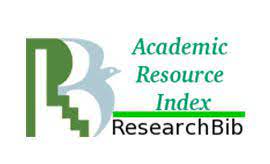REGULARITIES OF EDUCATIONAL MANAGEMENT OF MULTIPROFILE INSTITUTIONS OF EXTRACURRICULAR EDUCATION IN THE CONDITIONS OF AUTONOMY
DOI:
https://doi.org/10.51707/2618-0529-2022-23-10Keywords:
theoretical and methodological principles of management, administrative staff, methodological concepts, personality, students of extracurricular education.Abstract
In the last decade, one of the topics that has received considerable attention is the need for changes in educational management at all levels. Special attention is drawn to multidisciplinary institutions of out-of-school education, which are of great value to the individual, who acquires a variety of competencies, gets the opportunity to develop creativity, creativity. Recognition of the importance of basic laws, the possibility of summarizing on their basis of content and principles is the starting point for further transformation of extracurricular activities. In the educational management of such institutions, regularities should attract a lot of attention from various representatives of civil society, as children and young people who can study in such institutions receive additional opportunities to improve their quality of life. This study aims to consider the basic patterns on which it is possible to further build a new content and principles of the educational management of multidisciplinary out-of-school education institutions. We believe that the educational management in the era of posthumanism is based on values – knowledge, skills, competencies. This requires scientifically focused planning in order to improve the quality of extracurricular education, to anticipate changes in the process of managing creative teams, to take to a new level the position on the motivation of teachers and support their activities. Such knowledge will help to identify existing threats in time, turn them into additional opportunities and further use all possible resources to achieve high quality work of out-of-school teachers. The knowledge of the basic laws, the possibility of constructing new content and principles of educational management of multidisciplinary out-of-school educational institutions encourages administrative staff to perform work not only qualitatively, according to job responsibilities, but also creatively, taking into account innovations in management. The author highlights the main laws of educational management of multidisciplinary out-of-school education institutions, which are necessary for the development of a new system for management in autonomy: consistency of educational policy in the field of extracurricular activities in accordance with existing population demand; correlation of the requirements of modern educational management with those management practices that are available in institutions; optimal combination of traditions and innovations in the process of institution development; the dependence of the prosperity of multidisciplinary institutions of out-of-school education in the future on the development of management activities according to new modern requirements (adaptability, creativity, creativity, flexibility); coherence of work of different directions and conformity of their development to the needs of out-of-school education seekers.
References
Popova, N. V. (2008). Orhanizatsiino-metodychni zasady konsultatyvnoho zabezpechennia upravlinskoi diialnosti kerivnykiv zahalnoosvitnikh navchalnykh zakladiv u rehioni [Organizational and methodological principles of advisory support of management activities of heads of secondary schools in the region]. Extended abstract of candidate’s thesis. Kyiv : Universytet menedzhmentu osvity APN Ukrayiny [in Ukrainian].
Odainyk, S. F. (2018). Teoretychni i metodychni zasady upravlinnia yakistiu zahalnoi serednoi osvity v rehioni [Theoretical and methodological principles of quality management of general secondary education in the region]. Extended abstract of Doctor’s thesis. Cherkasy : Ukrainska inzhenerno-pedahohichna akademiia, Cherkaskyi natsionalnyi universytet imeni Bohdana Khmelnytskoho MON Ukrainy [in Ukrainian].
Vasynova, N. S. (2019). Rozvytok teorii upravlinnia vyshchymy navchalnymy zakladamy v Ukraini (ostannya chvert XX – pochatok XXI stolittya) [Development of the theory of management of higher educational institutions in Ukraine (the last quarter of the XX – the beginning of the XXI century)]. Extended abstract of candidate’s thesis. Starobilsk : Derzhavnyi zaklad “Luhanskyi natsionalnyi universytet imeni Tarasa Shevchenka”. DOI: https://doi.org/10.2139/ssrn.3558799 [in Ukrainian].
Kravchenko, O. I. (2018). Teoretyko-metodolohichni zasady modeliuvannia stratehichnoho rozvytku universytetu [Theoretical and methodological principles of modeling the strategic development of the university]. Extended abstract of Doctor’s thesis. Starobilsk : Derzhavnyi zaklad “Luhanskyi natsionalnyi universytet imeni Tarasa Shevchenka” [in Ukrainian].
Mirovska, M. (2018). Teoriia i praktyka upravlinnia osvitnim protsesom na osnovi keis-menedzhmentu v zakladakh vyshchoi osvity [Theory and practice of case management on the basis of case management in higher education institutions]. Extended abstract of Doctor’s thesis. Kyiv : Derzhavnyi vyshchyi navchalnyi zaklad “Universytet menedzhmentu osvity” NAPN Ukrainy [in Ukrainian].
Kozhevnykov, V. M. (2012). Orhanizatsiino-dydaktychni zasady zabezpechennia nastupnosti profilnoi shkoly i vyshchoho navchalnoho zakladu [Organizational and didactic principles of ensuring the continuity of the profile school and higher education institution]. Extended abstract of Doctor’s thesis. Luhansk : MONMS Ukrainy, Skhidnoukr. nats. in-t im. V. Dalia [in Ukrainian].
Lyst Ministerstva osvity i nauky Ukrainy Pro orhanizatsiiu osvitnoho protsesu v zakladakh pozashkilnoi osvity u 2021/2022 navchalnomu rotsi [Letter of the Ministry of Education and Science of Ukraine On the organization of the educational process in out-of-school education institutions in the 2021/2022 academic year]. (2021, August 17, № 1/9-414). Retrieved from https://mon.gov.ua/ua/osvita/pozashkilna-osvita/dovidnik-direktora-zakladu-pozashkilnoyi-osviti [in Ukrainian].
Coombs, P. H. (1974). Major Problems Facing Educational Planning in the Next Decade. Paris : International Institute for Educational Planning. Retrieved from https://files.eric.ed.gov/fulltext/ED113787.pdf.
Hamel, G., & Breen, B. (2007). The Future of Management. Brighton : Harvard Business Review Press.
Tasdemir, A., Kartal, T., & Kus, Z. (2012). The Use of Out-of-the-School Learning Environments for the Formation of Scientific Attitudes in Teacher Training Programmes. Procedia – Social and Behavioral Sciences, 46, 2747–2752. Retrieved from https://www.sciencedirect.com/science/article/pii/S1877042812016886. DOI: https://doi.org/10.1016/j.sbspro.2012.05.559.
Downloads
Published
How to Cite
Issue
Section
License
Copyright (c) 2022 Scientific notes of Junior Academy of Sciences of Ukraine

This work is licensed under a Creative Commons Attribution 4.0 International License.













